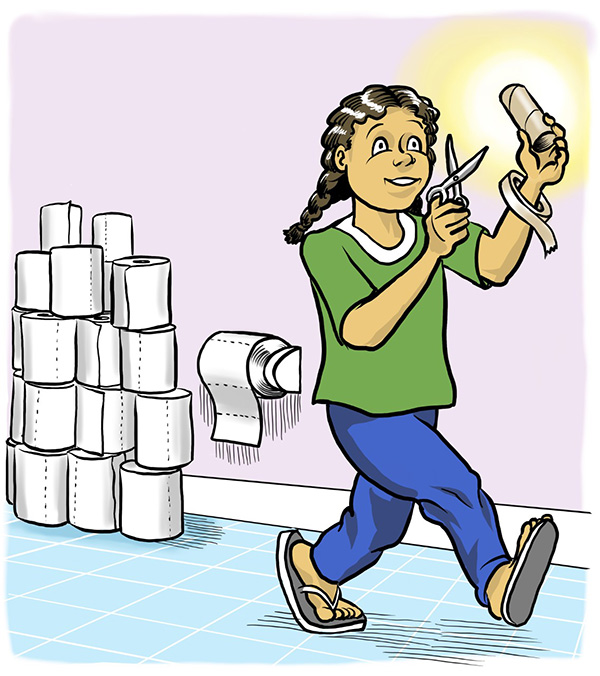This is part 1 of a a three-part series. Read Part 2 (Online Activities) and Part 3 (Outdoor Tips).
We know this is an unprecedented and trying time, and like so many others, we’re here to help. Aside from the basics of staying healthy and following the latest safety protocols, the biggest challenge for many parents and caregivers of young ones is keeping them engaged without driving yourself crazy. ELN has spoken to top early learning researchers to create researched-based inspiration—activity guides, toolkits, easy downloads—in three categories: Offline, Online and Outdoors.
Regardless of activity, remember the most basic tenets of brain building. “Find small moments during the day when you can have a conversation,” suggests Ellen Galinsky, chief science officer of the Bezos Family Foundation. “Brain building is all about the give-and-take, the back-and-forth. Ask questions, listen to responses and let your child take the lead. What’s he most curious about? What does she most want to explore?” Those small moments add up and can turn a stressful day into a time you’ll both cherish.
Part 1: Offline Tips and Activities
- Activity Guide! ZERO to THREE’S new at-home activity guide offers creative parent-child play ideas. Here’s one important insight: “Remember that one of the most favorite types of play for children is helping you with ‘real’ work.”
- Stay calm, cool and collected. Save the Children shares 6 relaxation activities for kids. What’s your favorite among the Turtle, Stress Balls or the Lazy Cat? Amy S. Levner from KaBOOM! says, “We love any idea that gets kids playing, no matter where they are. Save the Children has excellent resources on this issue. They’re who we always turn to when there’s a crisis at hand.” (Read more: Tackling the Play Deficit)
-

Illustration by Art Hondros Toolkit Alert! The new Too Small to Fail toolkit recommends 10 ways to talk, read, sing and play your way through the day, using nothing but supplies already found around the house). Our favorite: Making your own rainstick: Use tape to close one end of a paper towel tube. Fill it with some rice, beans, lentils or even small pebbles or tiny acorns, and tape the other end. Decorate it with pictures or stickers. Shake, twirl and dance! (Read about Too Small to Fail’s laundromat-based literacy programs.)
- Make it fun. Geetha B. Ramani, associate professor at the University of Maryland, knows the value of games! She says, “When my kids were little, we would do lots of things related to music when we were stuck indoors. Make instruments out of household items, like Tupperware. Have ‘concerts’ and ‘parades’ around the house. Have a dance party and play follow the leader with dance moves. Luckily now that my kids are older, they both still like music and both play several instruments.” Dr. Ramani also reminds parents to be kind to themselves. Read more: Planes, Trains & Automobiles: 7 Summer Brain-Building Travel Tips from Child Development Experts)
- Color Your World. Discover more than 675 free printable coloring pages at Coloring Nature, with new pages added weekly.
Don’t miss: A parent’s guide to surviving COVID-19: 8 strategies to keep children healthy and happy from two of our favorite researchers: Kathy Hirsh-Pasek and Roberta Michnick Golinkoff.
Stay tuned for Monday’s roundup of Online Tips and Activities!





